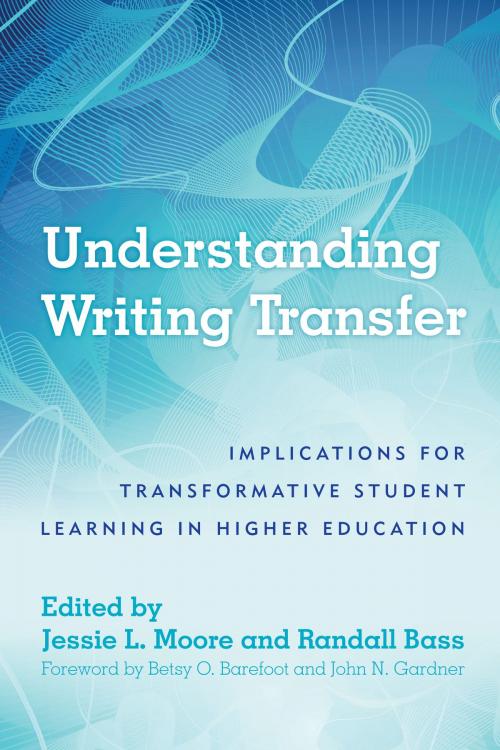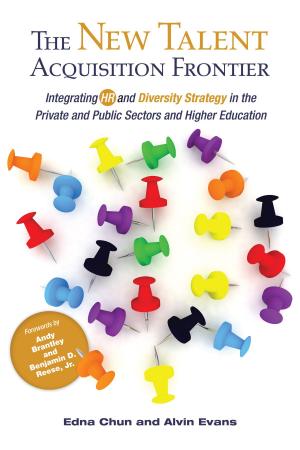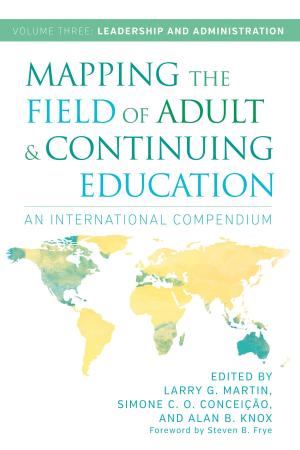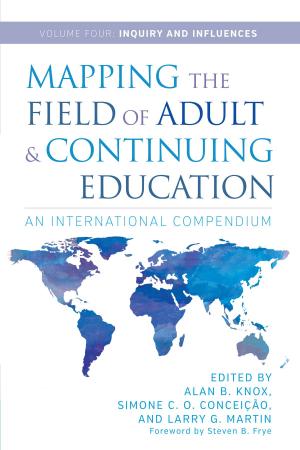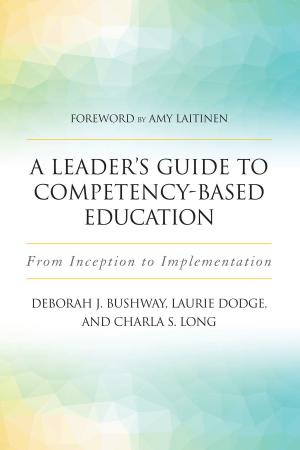Understanding Writing Transfer
Implications for Transformative Student Learning in Higher Education
Nonfiction, Reference & Language, Education & Teaching, Higher Education| Author: | ISBN: | 9781620365878 | |
| Publisher: | Stylus Publishing | Publication: | January 20, 2017 |
| Imprint: | Stylus Publishing | Language: | English |
| Author: | |
| ISBN: | 9781620365878 |
| Publisher: | Stylus Publishing |
| Publication: | January 20, 2017 |
| Imprint: | Stylus Publishing |
| Language: | English |
While education is based on the broad assumption that what one learns here can transfer over there – across critical transitions – what do we really know about the transfer of knowledge?
The question is all the more urgent at a time when there are pressures to “unbundle” higher education to target learning particular subjects and skills for occupational credentialing to the detriment of integrative education that enables students to make connections and integrate their knowledge, skills and habits of mind into a adaptable and critical stance toward the world
This book – the fruit of two-year multi-institutional studies by forty-five researchers from twenty-eight institutions in five countries – identifies enabling practices for, and five essential principles about, writing transfer that should inform decision-making by all higher education stakeholders about how to generally promote the transfer of knowledge.
This collection concisely summarizes what we know about writing transfer and explores the implications of writing transfer research for universities’ institutional decisions about writing across the curriculum requirements, general education programs, online and hybrid learning, outcomes assessment, writing-supported experiential learning, e-portfolios, first-year experiences, and other higher education initiatives.
This volume makes writing transfer research accessible to administrators, faculty decision makers, and other stakeholders across the curriculum who have a vested interest in preparing students to succeed in their future writing tasks in academia, the workplace, and their civic lives, and offers a framework for addressing the tensions between competency-based education and the integration of knowledge so vital for our society.
The question is all the more urgent at a time when there are pressures to “unbundle” higher education to target learning particular subjects and skills for occupational credentialing to the detriment of integrative education that enables students to make connections and integrate their knowledge, skills and habits of mind into a adaptable and critical stance toward the world
This book – the fruit of two-year multi-institutional studies by forty-five researchers from twenty-eight institutions in five countries – identifies enabling practices for, and five essential principles about, writing transfer that should inform decision-making by all higher education stakeholders about how to generally promote the transfer of knowledge.
This collection concisely summarizes what we know about writing transfer and explores the implications of writing transfer research for universities’ institutional decisions about writing across the curriculum requirements, general education programs, online and hybrid learning, outcomes assessment, writing-supported experiential learning, e-portfolios, first-year experiences, and other higher education initiatives.
This volume makes writing transfer research accessible to administrators, faculty decision makers, and other stakeholders across the curriculum who have a vested interest in preparing students to succeed in their future writing tasks in academia, the workplace, and their civic lives, and offers a framework for addressing the tensions between competency-based education and the integration of knowledge so vital for our society.
While education is based on the broad assumption that what one learns here can transfer over there – across critical transitions – what do we really know about the transfer of knowledge?
The question is all the more urgent at a time when there are pressures to “unbundle” higher education to target learning particular subjects and skills for occupational credentialing to the detriment of integrative education that enables students to make connections and integrate their knowledge, skills and habits of mind into a adaptable and critical stance toward the world
This book – the fruit of two-year multi-institutional studies by forty-five researchers from twenty-eight institutions in five countries – identifies enabling practices for, and five essential principles about, writing transfer that should inform decision-making by all higher education stakeholders about how to generally promote the transfer of knowledge.
This collection concisely summarizes what we know about writing transfer and explores the implications of writing transfer research for universities’ institutional decisions about writing across the curriculum requirements, general education programs, online and hybrid learning, outcomes assessment, writing-supported experiential learning, e-portfolios, first-year experiences, and other higher education initiatives.
This volume makes writing transfer research accessible to administrators, faculty decision makers, and other stakeholders across the curriculum who have a vested interest in preparing students to succeed in their future writing tasks in academia, the workplace, and their civic lives, and offers a framework for addressing the tensions between competency-based education and the integration of knowledge so vital for our society.
The question is all the more urgent at a time when there are pressures to “unbundle” higher education to target learning particular subjects and skills for occupational credentialing to the detriment of integrative education that enables students to make connections and integrate their knowledge, skills and habits of mind into a adaptable and critical stance toward the world
This book – the fruit of two-year multi-institutional studies by forty-five researchers from twenty-eight institutions in five countries – identifies enabling practices for, and five essential principles about, writing transfer that should inform decision-making by all higher education stakeholders about how to generally promote the transfer of knowledge.
This collection concisely summarizes what we know about writing transfer and explores the implications of writing transfer research for universities’ institutional decisions about writing across the curriculum requirements, general education programs, online and hybrid learning, outcomes assessment, writing-supported experiential learning, e-portfolios, first-year experiences, and other higher education initiatives.
This volume makes writing transfer research accessible to administrators, faculty decision makers, and other stakeholders across the curriculum who have a vested interest in preparing students to succeed in their future writing tasks in academia, the workplace, and their civic lives, and offers a framework for addressing the tensions between competency-based education and the integration of knowledge so vital for our society.
